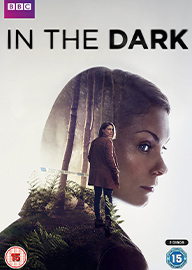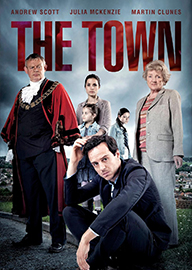Quirke
- 6.9
- Crime
- 2014
- 1h 30m
- 14+
A gripping Irish drama series based on the novels by John Banville, writing as Benjamin Black. Set in 1950s Dublin, the series follows Chief Pathologist Quirke as he investigates mysterious deaths that often lead him into the dark underbelly of society. Starring Gabriel Byrne in a mesmerizing performance, the series combines intricate mysteries with deeply personal struggles, offering a compelling exploration of secrets, family dynamics, and morality. With its atmospheric setting and complex characters, Quirke delivers a noir-inspired journey into the heart of 1950s Dublin.
















Comments
0Reviews
0Summery
1Please sign in to comment.
Please sign in to review.
Quirke (2014) is a compelling Irish-British television drama that masterfully intertwines crime, mystery, and human emotion into a gripping narrative. Based on the novels by John Banville, written under the pseudonym Benjamin Black, the series follows the enigmatic and troubled Quirke, a pathologist in 1950s Dublin. With its rich period detail, morally complex characters, and an intricate exploration of societal constraints, Quirke offers a unique blend of noir and drama, set against the atmospheric backdrop of mid-20th-century Ireland.
The series delves into Quirke’s professional and personal life, with Gabriel Byrne delivering a captivating performance in the titular role. As a pathologist, Quirke is drawn into investigations that uncover not only criminal conspiracies but also deep-seated secrets within Dublin’s close-knit and often oppressive society. The cases he encounters frequently intersect with his own life, forcing him to confront painful memories, unresolved family tensions, and his struggles with alcoholism. Byrne’s portrayal captures Quirke’s brooding intensity and vulnerability, making him a deeply human and relatable protagonist.
What sets Quirke apart is its richly atmospheric setting. The show meticulously recreates 1950s Dublin, from its shadowy alleys and grand institutions to its bustling streets and genteel drawing rooms. This attention to detail immerses viewers in a world shaped by rigid social hierarchies, religious influence, and the simmering tensions of a post-war society. The cinematography enhances this atmosphere, with its muted color palette and evocative lighting evoking the moodiness of classic noir. The city itself becomes a character in the series, its secrets and contradictions mirroring Quirke’s own inner turmoil.
The narrative intricacy of Quirke is another hallmark of the series. Each episode adapts one of Banville’s novels, weaving together elements of mystery, psychological drama, and social commentary. The cases often involve themes of betrayal, corruption, and moral ambiguity, challenging both Quirke and the audience to grapple with difficult questions about justice and human nature. At the same time, the series delves deeply into the personal lives of its characters, exploring their desires, regrets, and complex relationships. This blend of procedural and character-driven storytelling adds depth and richness to the narrative.
The supporting cast is equally compelling, bringing to life a range of characters who are as layered and enigmatic as Quirke himself. Aisling Franciosi shines as Phoebe, Quirke’s daughter, whose strained relationship with her father forms one of the emotional cores of the series. Nick Dunning, Stanley Townsend, and other accomplished actors add further depth to the ensemble, portraying figures who navigate the same morally fraught world as Quirke. These performances ground the series’ larger themes in the personal, making its explorations of guilt, redemption, and the search for truth all the more poignant.
At its heart, Quirke is a meditation on the human condition, examining the ways in which people are shaped by their choices, circumstances, and secrets. The series does not offer easy resolutions or neatly tied-up endings; instead, it embraces complexity, leaving room for ambiguity and introspection. This commitment to nuance makes Quirke not only a captivating mystery series but also a profound exploration of identity, morality, and the nature of truth.
In conclusion, Quirke (2014) is a standout in the realm of crime dramas, combining a compelling lead performance, richly atmospheric storytelling, and a nuanced exploration of human emotion and societal constraints. With its blend of noir aesthetics, literary depth, and character-driven drama, the series offers a viewing experience that is as thought-provoking as it is engrossing. For fans of intelligent, emotionally resonant storytelling, Quirke is an unmissable gem that lingers long after the credits roll.